Lesléa Newman is the author of 80 books for readers of all ages, including the novel-in-verse October Mourning: A Song for Matthew Shepard; the short story collection A Letter to Harvey Milk; the dual memoir-in-verse I Carry My Mother and I Wish My Father; the picture books Sparkle Boy and The Boy Who Cried Fabulous; and the children’s classic Heather Has Two Mommies. Her honors and literary awards include the Matthew Shepard Foundation Making a Difference Award, a National Endowment for the Arts poetry fellowship, two American Library Association Stonewall Honors, two National Jewish Book Awards, the Association of Jewish Libraries Sydney Taylor Body-of-Work Award, and the Massachusetts Book Award. From 2008–10, she served as the poet laureate of Northampton, Massachusetts. Seven of her poems from October Mourning: A Song for Matthew Shepard are included in the libretto of Considering Matthew Shepard, a fusion oratorio composed by Craig Hella Johnson. Newman lives in Holyoke, Massachusetts.
I had the opportunity to interview Lesléa, which you can read below.
CW: Discussion of homophobic hate crimes.
First of all, welcome to Geeks OUT. Could you tell us a little about yourself?
I am so happy to be here! I am a proud Jewish lesbian author of more than 80 books for readers of all ages including the famous and infamous Heather Has Two Mommies. I live with my beloved spouse of 35 years who is very kind, and our 11 year old cat who is very bossy.
What can you tell us about your latest book, Always Matt: A Tribute to Matthew Shepard? What inspired this project?
Always Matt is a fully illustrated book-length poem that celebrates Matthew Shepard’s life and legacy. I was actually asked by a member of the Matthew Shepard Foundation to write a book geared toward young readers about Matt’s life. My hope is that the book will be read and discussed by families and in classrooms and that it will inspire readers of all ages to take action to make the world a better place.
I’ve noticed from your body of work that this isn’t the first time you’ve written about Matthew Shepard (i.e. October Mourning: A Song for Matthew Shepard.) May I ask what keeps drawing you back to writing about Shepard?
Because fate brought me to the University of Wyoming campus the day that Matt died and because he was on the committee of LGBT students who chose me to be the keynote speaker for their Gay Awareness Week, and because I missed meeting him by one day, I feel that my life is intricately bound up with his story. His untimely death grieves me deeply and I feel compelled to do all that I can to keep his name and legacy alive.
How did you find yourself getting into storytelling, especially for younger readers?
I have been writing stories and poems since I was a young child in order to understand the world outside me, the world inside me, and the relationship between the two. I started my writing career as a poet, studying with Allen Ginsberg and others, and poetry is still my first love. I have also always loved children’s books. And children love poetry! So it was a natural progression from writing poems for adults to writing poems for children to writing picture books.
As an author, you are known for the book, Heather Has Two Mommies, one of the first highly acclaimed (and highly banned) picture books concerning queer themes? How does it feel having that type of legacy as a queer author yourself?
So many people advised me to publish Heather under a pen name. But I never was one for hiding who I am. I am proud to have been called the grandmother of LGBTQ+ kidlit! Many writers have thanked me for paving the way. And I love reading recently published queer children’s books. How wonderful that today’s children have a more diverse reading experience than my generation did.
What are your thoughts on the presence of LGBTQ+ representation in all-ages media and literature today?
Things have improved but of course we can do better. And we have to do better. All children deserve to see themselves and their families represented in the media. At this point in time, it shouldn’t be a big deal to have LGBTQ+ characters in a movie or TV show or book. It should be matter-of-fact.
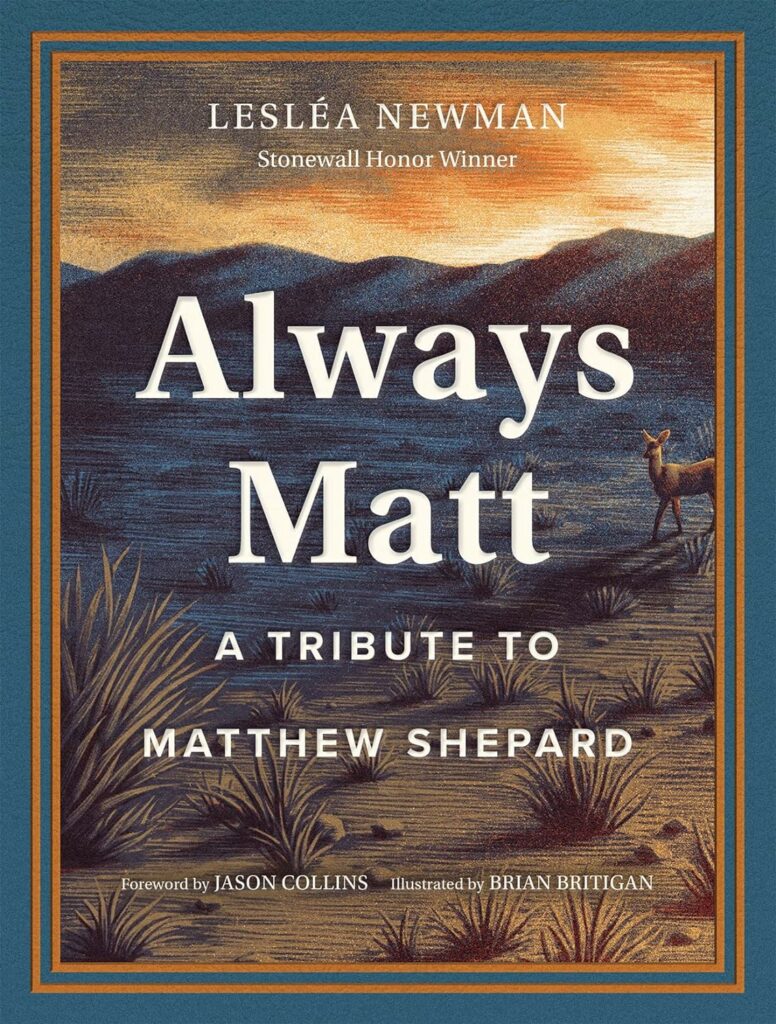
In a previous article you stated, “I write out of a Jewish lesbian experience about the human experience.” As a queer and Jewish person myself, I would love it if you could possible expand on that quote here and what it means to you writing from that intersectional experience?
I see the world through the dual lens of being a Jew and being a lesbian. Even if my work doesn’t have overt Jewish content or overt queer content, it is always my perspective. And the closer I get to expressing my own authentic experience, the closer I get to expressing the human experience that we all share. We all have the same emotions: joy, sorrow, anger, hope, despair, grief, happiness, love. The more specific I can be, the more my reader can relate to my words, even when they do not come from a background similar to my own.
How would you describe your creative process?
The author Gene Fowler said, “Writing is easy: All you do is sit staring at a blank sheet of paper until 3 drops of blood appear on your forehead.” That about sums it up. I write most mornings with a pen and spiral notebook and wait for something to happen. The important thing to do is to keep the pen moving until something sparks on the page. I can go for a long time –days! weeks!—before an idea takes form. And that can be frustrating. But it’s all part of the process.
As a writer, who or what would you say are some of your greatest creative influences and/or sources of inspiration?
My teachers, Allen Ginsberg and Grace Paley continue to influence me. I can still hear their voices in my head. Allen always said, “First thought, best thought” meaning try to stay connected to that first creative spark as you keep revising and revising. Grace gave me permission to “not write in the Queen’s English.” She encouraged me to write in Yinglish, (English with Yiddish phrases and syntax) which is the language of my grandmothers, the language of my heart.
Growing up, were there any stories in which you felt touched by/ or reflected in? Are there any like that now?
I did not find myself in any of the books I read growing up. There were no books that featured a little Jewish girl with curly hair eating matzo ball soup with her bubbe on Friday night (later on in life, I wrote one!). I felt my family was different, which really meant inferior. Why couldn’t we have a Christmas tree? Why couldn’t I hunt for Easter eggs? At the time, I was upset with my parents for not letting me do these things, but looking back, I am glad that they instilled in me a sense of who I was and a sense of pride. When I came out (in the early 1980’s) there were no books that featured Jewish lesbians so I wrote a novel, Good Enough to Eat (Firebrand Books, 1986) and a collection of short stories, A Letter to Harvey Milk (Firebrand Books, 1988) in order to see myself.
Besides your work, what are some things you would want readers to know about you?
I am a big animal lover and have learned a lot about nonverbal communication from every animal I have ever known. I love doing crossword puzzles (I have been a clue in the New York Times puzzle!) and I am addicted to watching Jeopardy (Heather Has Two Mommies was once a Jeopardy question!).
What’s a question you haven’t been asked yet but wish you were (and the answer to that question)?
Question: Is it true that someone once stopped you on the street to tell you that you looked just like Hedy Lamarr?
Answer: Yes!
Are there any other projects you are working on or thinking about that you are able to discuss?
I have several picture books coming out in the next few years.
Like Father, Like Son, illustrated by AG Ford and coming out from Abrams next year, celebrates what makes dads amazing and the special relationship between fathers and son.
Joyful Song illustrated by Susan Gal and coming out next year from Levine/Querido is about Zachary and his two moms welcoming their new baby girl with a naming ceremony that takes place in their synagogue.
What advice might you have to give to other aspiring writer?
Read as much as possible. Develop a regular writing habit. Find your people, those who care about you, admire you, support you, and also have the courage to give you honest feedback about your work. And most importantly, believe in yourself. Don’t try to write like anyone else. Oscar Wilde said, “Be yourself. Everyone else is taken.” Your voice is unique and it is your gift to the world.
Finally, what LGBTQ+ books/authors would you recommend to the readers of Geeks OUT?
Oh, there are so many!
For graphic memoirs: Alison Bechdel and Mike Curato
For poetry: Minnie Bruce Pratt and Saeed Jones
For children’s books: Rob Sanders, Maya Gonzalez, and Jacqueline Woodson
For teen novels: Abdi Nazemian and Malinda Lo

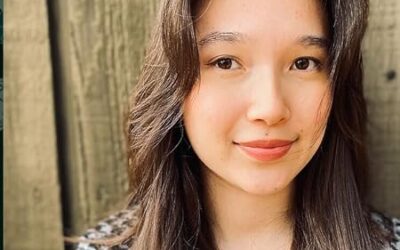
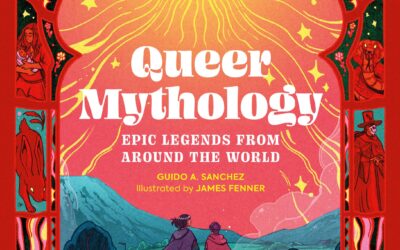
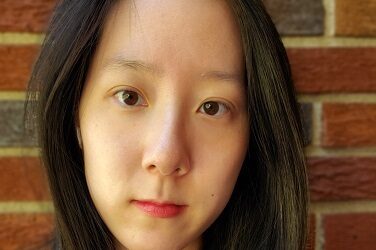
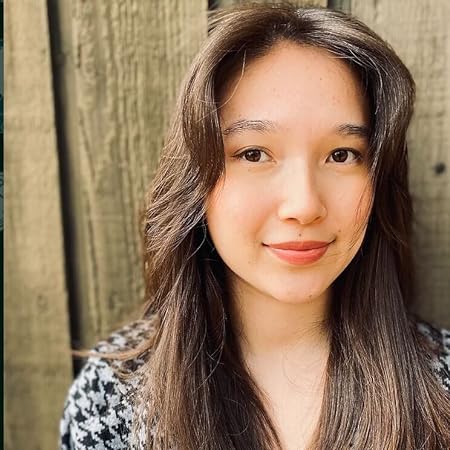
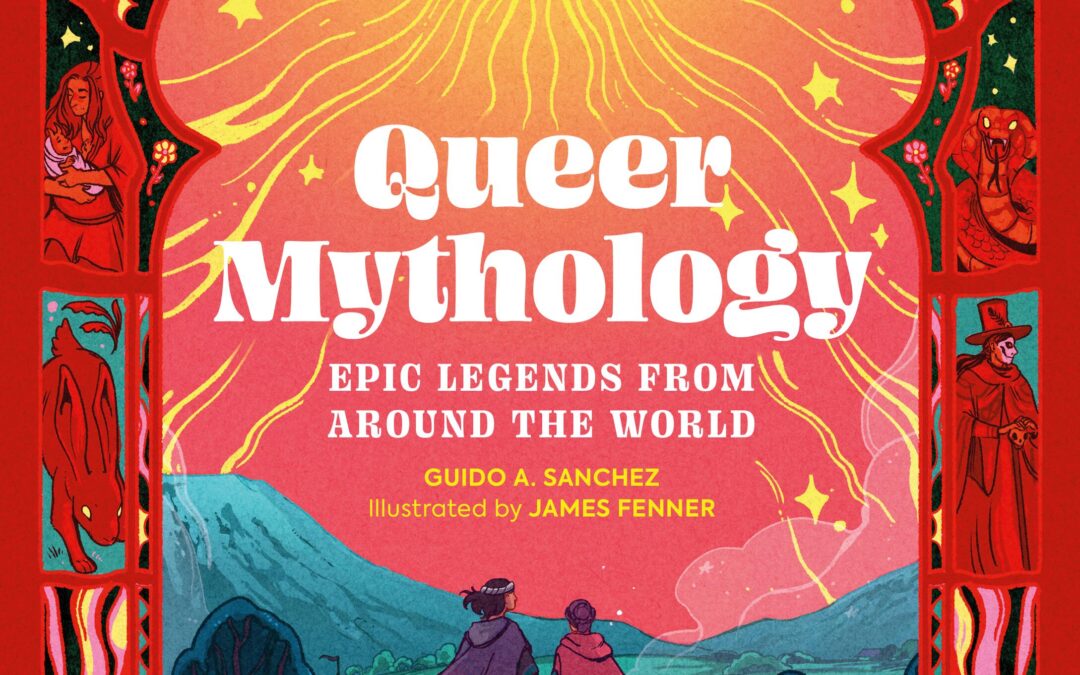
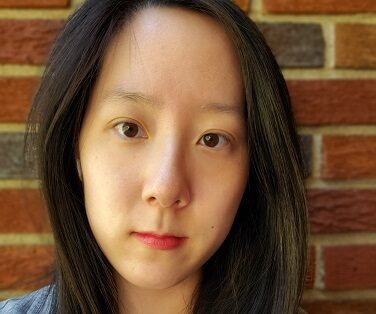
0 Comments